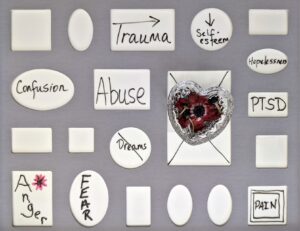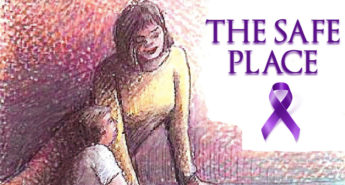 June is PTSD Awareness Month, a time dedicated to increasing understanding of post-traumatic stress disorder. PTSD can affect anyone who has lived through a terrifying or painful event. This includes survivors of domestic violence, who often experience trauma in their own homes, the place that should feel safest.
June is PTSD Awareness Month, a time dedicated to increasing understanding of post-traumatic stress disorder. PTSD can affect anyone who has lived through a terrifying or painful event. This includes survivors of domestic violence, who often experience trauma in their own homes, the place that should feel safest.
PTSD is a mental health condition that can develop after someone goes through or witnesses a dangerous or disturbing event. For people who have experienced domestic violence, this might include physical abuse, emotional cruelty, or even constant fear and control. These types of abuse can leave lasting marks that are not always visible.
Many people think of PTSD in relation to war veterans, but domestic violence survivors can suffer from it too. In fact, studies show that people who have been in abusive relationships often develop PTSD. The brain remembers trauma, especially when it happens over and over again. This can lead to nightmares, flashbacks, anxiety, and a constant feeling of being on edge.
Some survivors may avoid certain people, places, or situations that remind them of the abuse. Others may have trouble sleeping or concentrating. Some feel numb or disconnected from others, even from loved ones. These symptoms are not signs of weakness, they are the brain’s way of trying to protect itself from more harm.
Unfortunately, PTSD is often misunderstood. Some people think a person should “get over it” or that they are being too sensitive. But healing from trauma takes time, care, and support. It is important to recognize that PTSD is a real medical condition, and it deserves proper treatment.
Treatment options for PTSD include therapy, support groups, and in some cases, medication. Talking to a trained mental health professional can help survivors process their trauma and learn how to cope with triggers in healthy ways. There is no one-size-fits-all approach, but recovery is possible.
For domestic violence survivors, finding a safe and supportive space is a key step toward healing. Shelters and programs that serve survivors understand the effects of trauma and can connect individuals to the help they need. These services may include counseling, safety planning, and resources for rebuilding one’s life.
Raising awareness about PTSD helps reduce the shame and silence that many survivors feel. It also helps family members, friends, and the community learn how to better support those affected. Kindness, patience, and understanding can make a big difference in someone’s recovery journey.
During PTSD Awareness Month, take a moment to learn more about the signs of trauma. Speak out against domestic violence and help others understand the deep and lasting effects it can have. Healing begins when survivors are believed, supported, and treated with dignity and care.
No one should have to face PTSD alone. Together, we can create a world where survivors of domestic violence feel safe, respected, and empowered to heal.
https://bhtherapygroup.com/why-ptsd-affects-women-more-than-men-and-what-we-can-do-about-it/
https://my.clevelandclinic.org/health/diseases/9545-post-traumatic-stress-disorder-ptsd




Leave a Reply